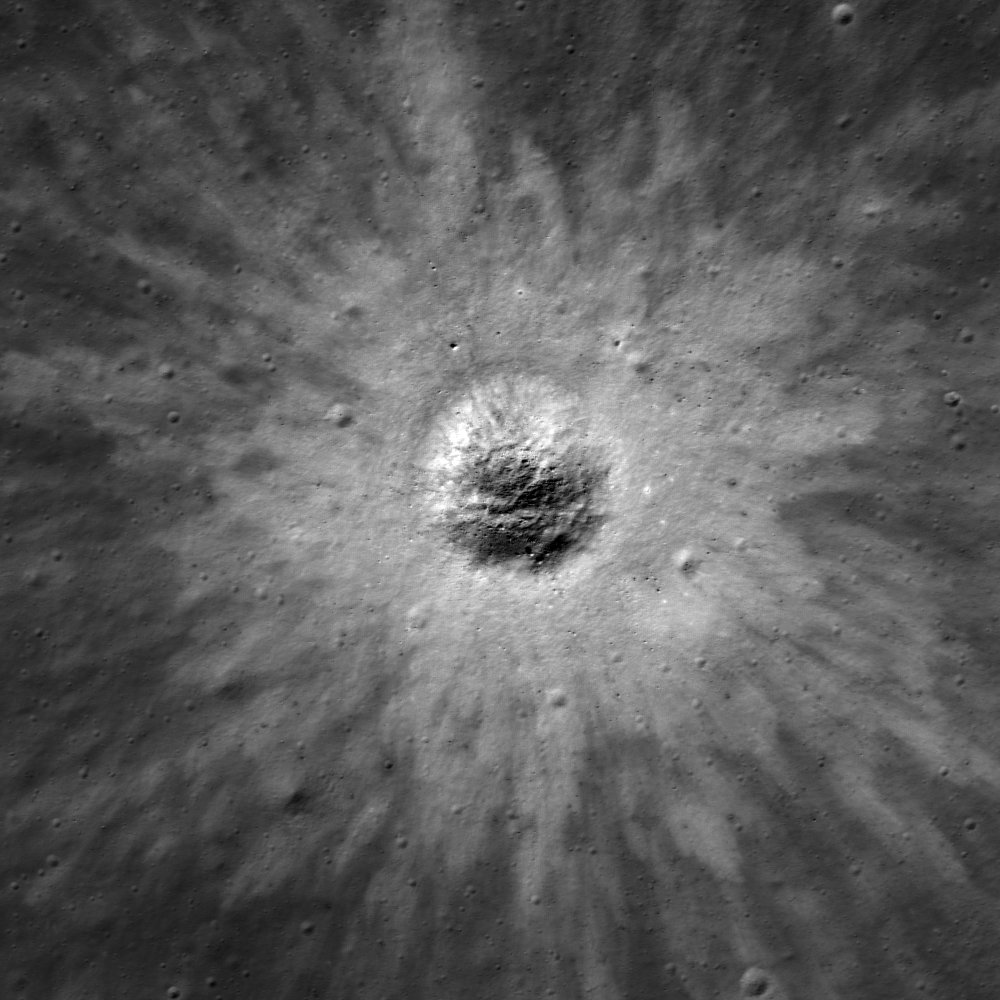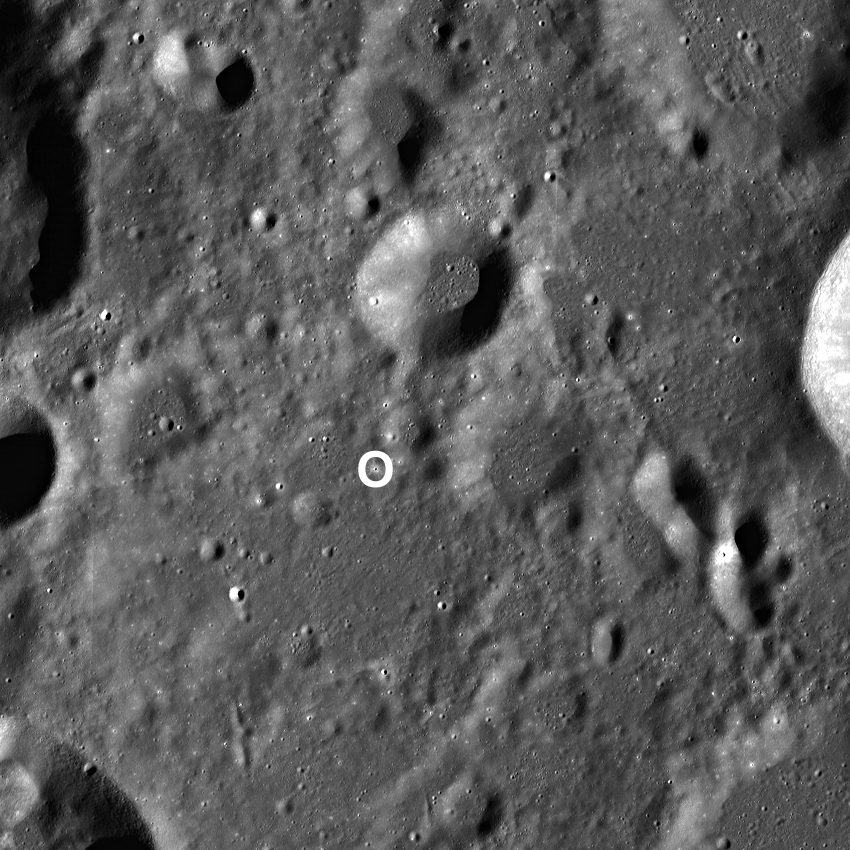
This Copernican-aged crater is located in the highlands at 41.571°N, 227.129°E. While the crater diameter is ~330 meters, the rays of high reflectance ejecta extend more than two crater diameters from the rim in all directions. The material in the ejecta is higher in reflectance compared to the surrounding material because it was recently exposed to the surface. Recently exposed material is called fresh since it is relatively unaffected by space weathering processes.
The layers of ejecta are thicker closer to the crater rim, and become progressively thinner with distance from the crater rim. Also the rays of ejecta furthest from the crater rim mix more with the surrounding material. The overall effect causes higher reflectance near the rim of the crater and lower reflectance of the ejecta as you get further away from the rim.
Explore the entire NAC frame!
Related Images:
Published by Sarah Braden on 6 December 2012
